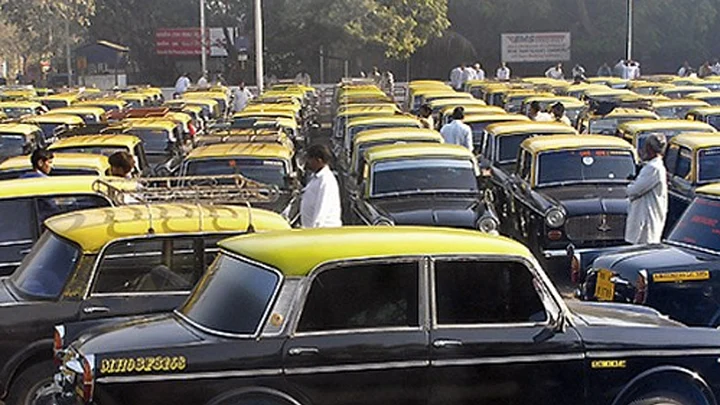There’s a lot going on in Mumbai these days: political parties are gearing up for the upcoming civic body elections, people are still reeling from the Supreme Court’s crackdown on their favourite cultural sport and now, the city is headed toward a ‘striking’ end.
Starting 29 August, three different auto and taxi unions have unanimously promised to take their vehicles off the road indefinitely. On 30 August, BEST employees are likely to go on strike. The last day of the month sees the largest auto and taxi union go on a one-day strike, with a march of several thousands up to Azad Maidan in South Mumbai.
The chances of the city coming to the standstill are so real that the state government received a slap on the wrist from the Bombay High Court on Thursday. The court has asked the government to ensure that the strikes by the auto and taxi unions especially don’t disturb the life of the common man; the frenzy, however, has already begun.
The Strength in Numbers
In what could be an amplified repeat of their strike on 21 June which threw the city off well beyond what was anticipated, three unions, auto and taxis are going on indefinite strike for a plethora of reasons, the main grudge being against app-based aggregators like Ola and Uber eating into their demand.
- 90% of all autos in Mumbai, Navi Mumbai and Thane to go on strike.
- 60% of all taxis might join their strike.
- Mumbai Autorickshaw and Taximen Union: 83,541 autorickshaws to go on a day-long strike across the city.
- Swabhiman Sangathana: 32,000 autos to go on strike in Mumbai, Navi Mumbai and Thane.
- Jai Bhagwan Taxi Rickshaw Sangathana (JBTRS): Representative of most of the autos in Navi Mumbai and outside the Mumbai Metropolitan Region (MMR).
- On June 21, JBTRS alone took 80% of taxis off the roads to support its protest at Azad Maidan against Ola and Uber, with incidents of violence involved.
The unions are going on strike until the government pulls services like Ola and Uber back in line and implements a City Taxi Scheme with fixed minimum wages, at the very least.
Since their last strike in June, the government has failed to implement the promised scheme and so we’re on strike.K K Tiwari, Union Leader, Swabhiman Sangathana

However, a strike of this scale necessarily has a series of frustrations behind it.
They have also replaced petrol with CNG vehicles, brought in more expensive cars as taxis and replaced mechanical meters with electronic ones. It’s all too costly for our drivers.Balasaheb Sanep, Union Leader, JBTRS
They want apps like Ola and Uber to ply only outside MMR if allowed at all, and that they follow RTO rules and regulations. They also allege that these services still follow their surge pricing model secretly, with hidden costs that ambush passengers at the end of their journey.
Meanwhile, Mumabai Autorickshaw and Taximen Union plan to walk to Azad Maidan on strike to demand that the state probe into actionable usage of call centre vehicles used to transport employees for other purposes.
BEST Says Enough is Enough
Who does the government turn to for help when the city is annually inundated and thousands are stranded in knee-deep water? Its sister civic body BEST or Brihanmumbai Electric Services and Transport, of course. Unhappy with what they received in return for a thankless, crucial job, drivers are planning to strike on 30 August.

On 7 July, in a bid to make Mumbai faster, better and more efficient, the government approved of a proposal to allow private AC buses to ply within the city, permit free. The Metropolitan Region Transport Authority’s (MMRTA) has thereby allowed 1,200-odd private AC buses within the city, thereby cutting into the share of BEST buses and local trains.
The BEST committee which consists of elected political representatives is worried this move will result in unprecedented losses and a further drop in passenger numbers, currently at its lowest of 32 lakh per day.
BEST runs around 4,500 buses covering 500 routes in Mumbai.
Considering how the city hasn’t yet made it through its stormy, unpredictable monsoons, they city will be held to ransom if these three strikes actually come through with public transport and - a long shot, this - rescue services being unavailable.
(At The Quint, we question everything. Play an active role in shaping our journalism by becoming a member today.)
